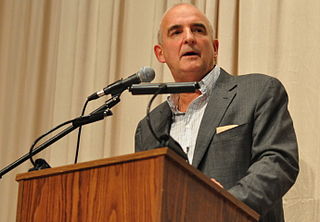A Quote by Cass Sunstein
Because those who hold conspiracy theories typically suffer from a crippled epistemology, in accordance with which it is rational to hold such theories, the best response consists in cognitive infiltration of extremist groups. Various policy dilemmas, such as the question whether it is better for government to rebut conspiracy theories or to ignore them, are explored in this light.
Related Quotes
The reason it is difficult is that we have been conditioned to laugh at conspiracy theories, and few people will risk public ridicule by advocating them. On the other hand, to endorse the accidental view is absurd. Almost all of history is an unbroken trail of one conspiracy after another. Conspiracies are the norm, not the exception.
It is rational to choose the right means to your ends to develop very elegant abstract formal theories of rational choice, and then turn these into what look like moral theories. Philosophers tend to be ravished by the formal beauty of such theories, and they don't pay much attention to the fact that our human limitations make them pretty useless in practice, while the simple point about instrumental reasoning is too shallow to be of much real moral interest.



































